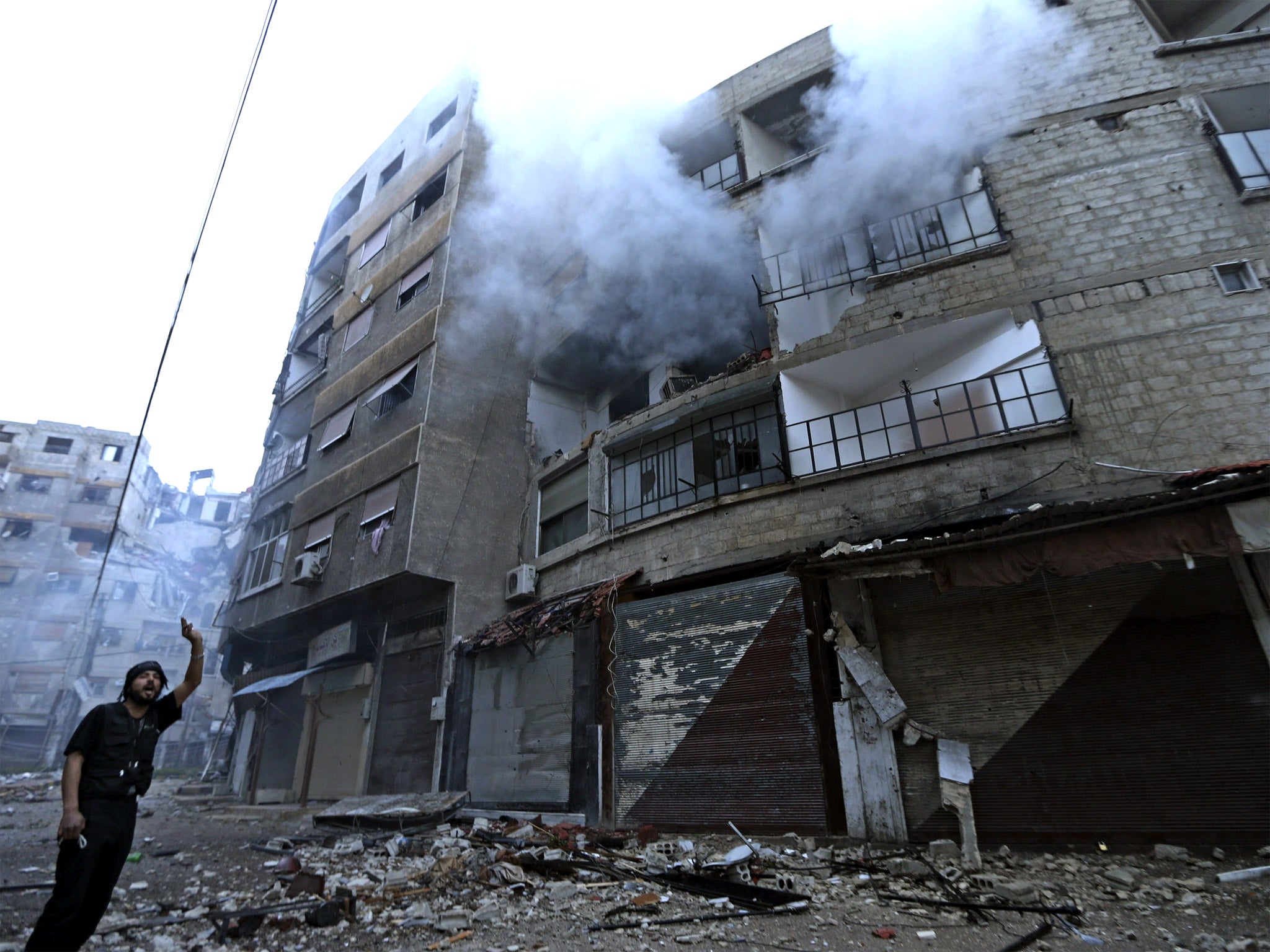Rebel groups launch operation to liberate Damascus
Syrian capital has escaped much of the country’s bloodiest and most violent fighting

A number of the fragmented rebel groups fighting Bashar al-Assad said that they had launched an operation to liberate Damascus today, as the Syrian capital witnesses some of the heaviest fighting it has seen for several weeks.
Six rebel groups took to social media sites to announce the start of “Operation Epic in the capital Omayyads” - a reference to the first dynasty of Arab caliphs, who chose Damascus as their capital. One of the groups involved was the Salafist Jabhat al-Nusra, which has claimed responsibility for a number of bomb attacks in Damascus and Aleppo in recent months.
Central Damascus was brought to a standstill as the rebels attacked roadblocks and other army fortifications. Government officials closed off Abbasid Square and the main Fares al-Khoury road in the city centre as the fighting intensified. Away from the capital, at least two bombs were detonated in the city of Palmyra, killing as many as 12 people.
Damascus has escaped much of the country’s bloodiest and most violent fighting in the now almost two-year old conflict, but various opposition groups do have strongholds in the city. “The areas of Jobar, Zamalka, al-Zablatani and parts of Qaboun and the ring road have become a battleground,” activist Fida Mohammad told the Reuters news agency from the district of Qaboun.
In Jobar, a working-class Sunni area near Abbasid Square, the chant from the mosques was, “God is Greatest” in support of opposition fighters. In response, state television reported that: “our noble army is continuing its operations against the terrorists in Arbeen, Zamalka and Harasta and Sbeineg, destroying the criminal lairs.”
There were differing reports on what had been targeted in Palmyra – a world heritage site famed for its Roman ruins - in the battle scared Homs province, which has suffered some of the worst fighting throughout the civil war.
Those loyal to the government said that two suicide bombers had blown up the cars they had parked near a residential part of the city, while the rebels attested that at least 12 people had died, and 20 had been injured, in an attack on a military intelligence centre.
In Cairo, at a meeting 57-member Organisation of Islamic Cooperation (OIC), delegates called for and end to the fighting, which according to the UN’s latest estimates has left 60,000 dead and another 700,000 fleeing to neighbouring countries in the Middle East – many of which are now struggling to cope with the influx of refugees.
Addressing the conference, Egypt’s President, Mohammed Morsi – who is himself struggling against major discontent among large sections of his own population - called on “the ruling regime” in Syria to learn the lessons of history and not put its interests above those of the rest of the country. He added that the OIC should lend its support to the opposition’s attempts to bring about regime change in the country.
Some analysts believe that Assad now controls as little as 30 per cent of the country, yet he maintains a grip on the military and security forces despite some notable defections.
Mahmoud Ahmadinejad, the Iranian president, who has supported the Assad regime throughout the Syrian civil war said that a military solution was not possible, and that both sides should agree a negotiated settlement.
A communique drafted by OIC foreign ministers blames Assad's government for most of the slaughter and urges it to open talks on a political transition, according to Reuters, which says it has seen the document.
Meanwhile, the UN said yesterday that the humanitarian situation inside Syria has reached “catastrophic” proportions, with 2.5 million people now lacking sufficient food.
Subscribe to Independent Premium to bookmark this article
Want to bookmark your favourite articles and stories to read or reference later? Start your Independent Premium subscription today.

Join our commenting forum
Join thought-provoking conversations, follow other Independent readers and see their replies